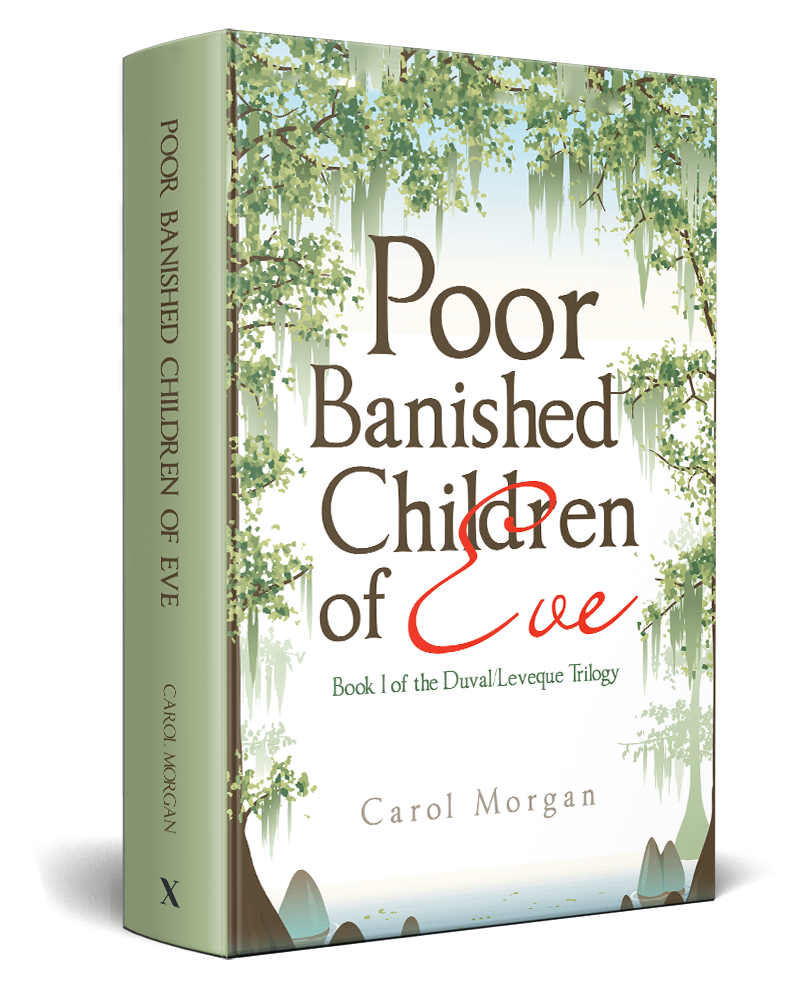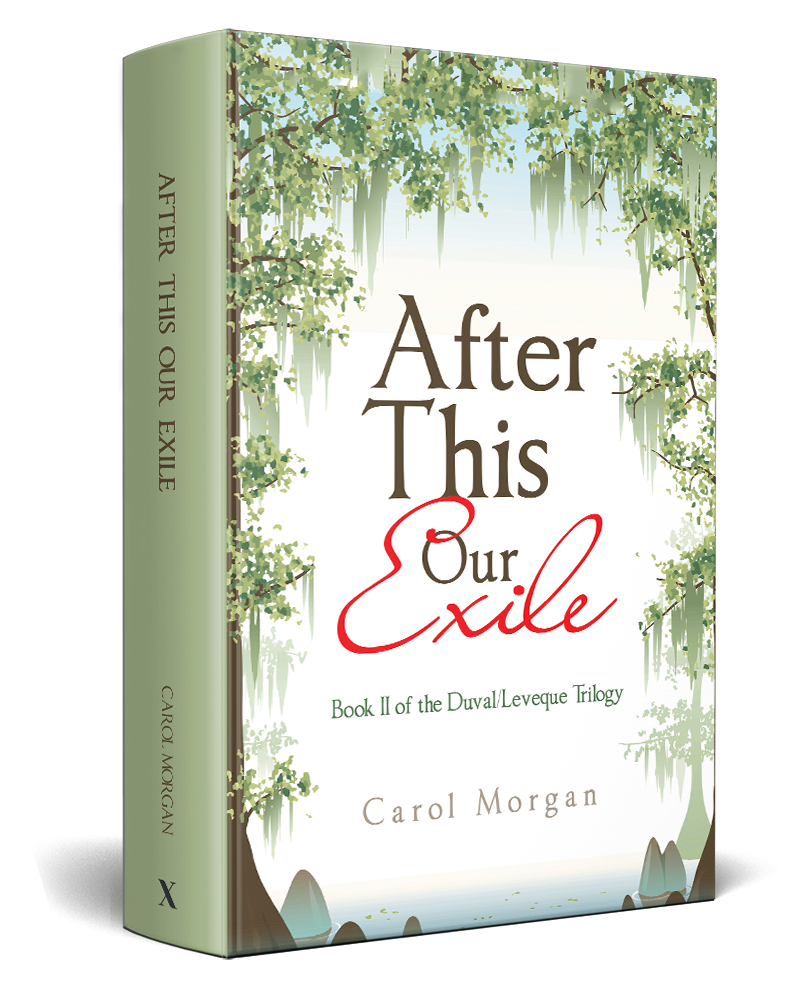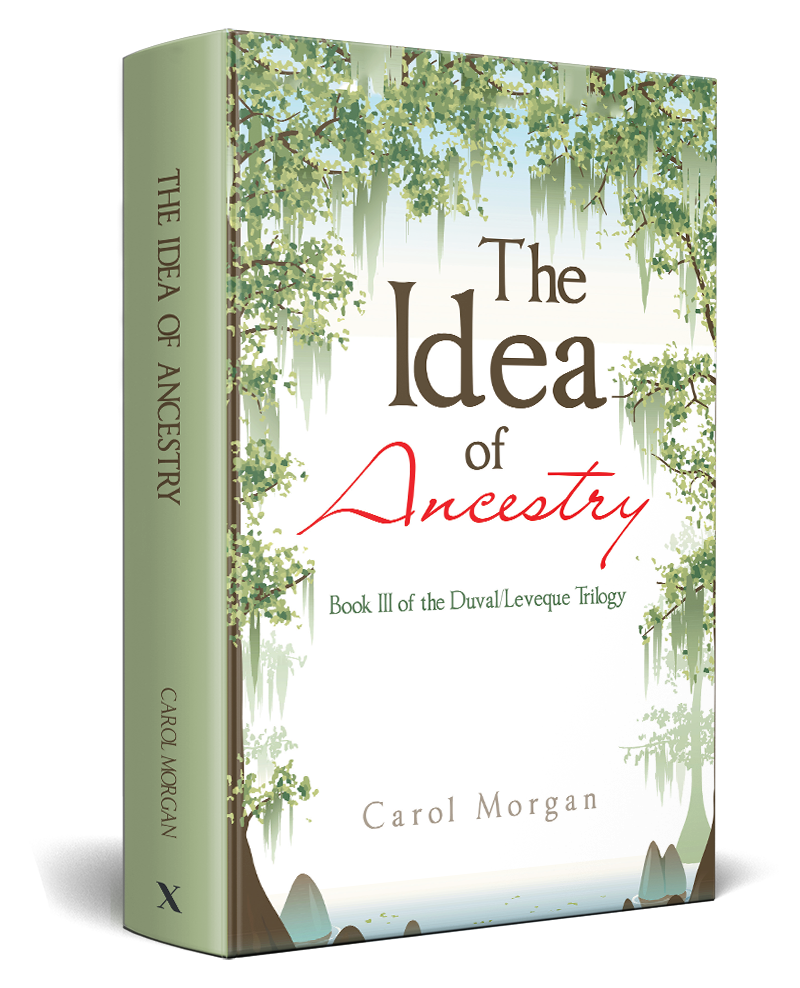Duval/Leveque Trilogy
Romance, tragedy and intrigue surrounds the two French families in these trilogy.
Poor Banished Children of Eve
The summer of 1957 was so hot it damn near scorched the cotton, folks would say in later years. Maringouin County, Mississippi languished beneath a blanket of sweltering heat, drowsing in remote splendor, with hardly a tremor from the racial turmoil that had begun slithering into the rest of the state. The county abutted the Louisiana state line. Consequently, many of the families in the county had, to some degree, a strain of French blood in their veins, but the most highly prized flowed down through the families who had fled Saint-Domingue during the uprising in 1791 – the Duval, Prejean, Babineaux, Delacroix and Leveque families. Most prominent of these families was the Leveque family who owned 275,000 acres of prime cotton land.
After This Our Exile
The gravel crunched beneath Nicolas Fontenot’s feet as he walked slowly up the drive, savoring the sight of the house. Along the front verandah giant fern grew in verdant profusion, lightning bugs twinkled and darted helter skelter, and the song of a myriad of insects pulsated through the summer dusk.
He paused at the bottom of the steps. He heard laughter from beyond the closed door and remembered, as if from a distant dream, the way the house had always seemed brimming with life, and a barrage of memories assaulted him.
It crossed his mind to leave again, to walk back down the driveway and disappear just as he has thirteen years ago, for the memories begat a deep and painful yearning that he perceived as weakness. He had moved beyond the world of La Bonne Vie and was not a part of the house or its life anymore.
He turned away, then hesitated, remembering the cemetery, the tombstones encrusted with lichen, the names as familiar as his own, the faces that had looked out at him from old photographs forever engraved in his mind. There was always a brooding sense of timelessness, an aura of peace there, as if the dead ancestors knew they belonged and were content to be there. A burning envy rose in him.
The Idea of Ancestry
He built a fire and finished his meal of canned stew and crackers, then brought out a bottle of whisky and lit a cigarette. The sky was star-studded and measureless, like a Delta night, he thought, only magnified. He smelled the innate scent of Africa, listened to the cries of bush babies, a faraway hyena, croaking giant toads, and nocturnal bird calls. He heard with a boyish thrill, a lion’s roar somewhere out in the darkness of his land, and felt himself beginning to come alive again.
Suddenly Desirée’s face flashed in his mind. The killing pain that had slowly numbed to a leaden emptiness, assaulted him fiercely. He could almost feel her in his arms, taste her lips, there in the depthless beauty of the African night where they had planned to spend their lives together. This had been their dream, not his alone. Now he would live that dream for her.
He tilted the bottle and drank deeply. As soon as the purchase of the farm was complete, and he would push firmly for a swift completion, he would go back to the States and get Jolie, his baby girl with rosy cheeks, laughing ebony eyes and dark gold curls, and bring her home … here to Maisha Mazuri, as he planned to call the farm, meaning in Swahili the same thing as La Bonne Vie – The Good Life.


